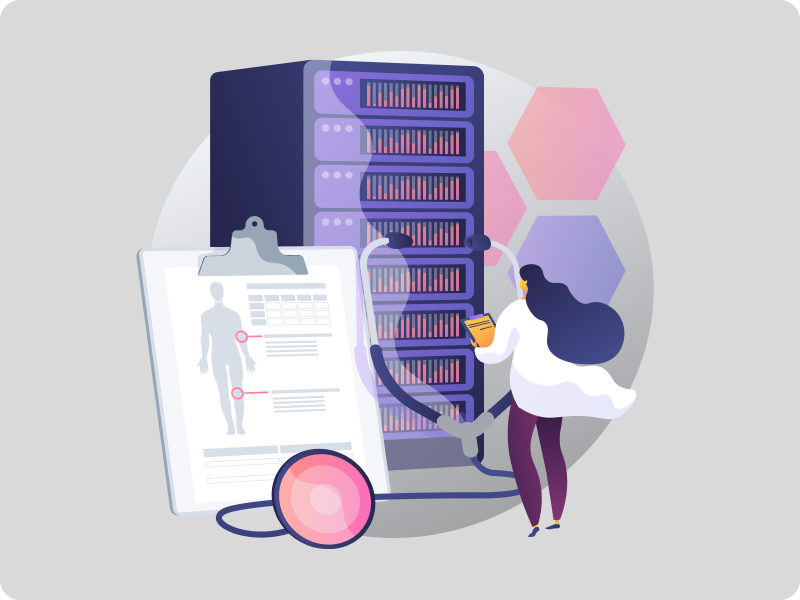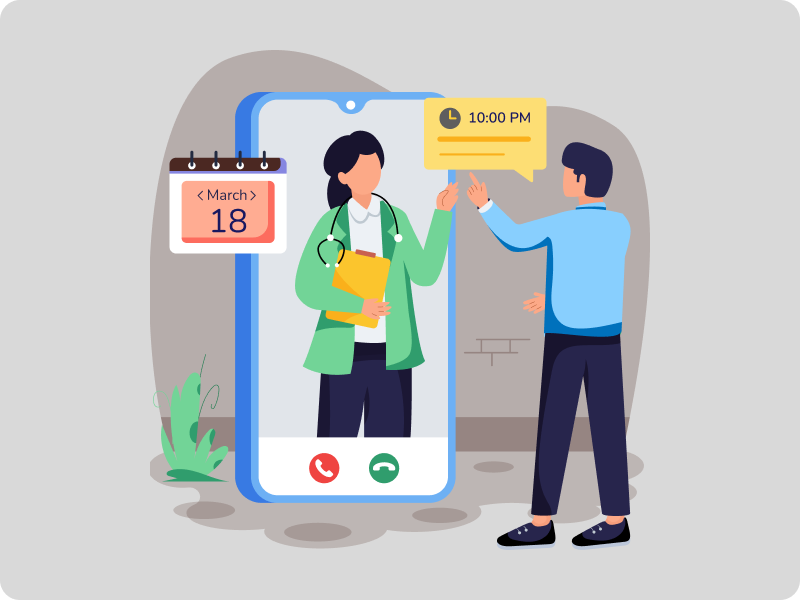Top 7 Challenges Hospitals Face Without a Digital Software
In today's competitive and fast-evolving healthcare landscape, hospitals can no longer afford to operate with fragmented or manual systems. Disconnected workflows, paper-based processes and department-specific software slow down care, frustrate patients and drain resources.
Here are the top 7 challenges hospitals face when they don't use integrated digital software and why upgrading is essential for long-term success.
1. Scattered Patient Records
When patient data is fragmented across departments, files or incompatible legacy software, healthcare practices spend valuable time locating information. This can lead to incomplete medical histories, repeated diagnostic tests and even errors. Without a unified platform, there's no single source of truth, making collaboration harder and care less efficient.
An integrated platform consolidates patient records, lab results, prescriptions and notes into a single, secure dashboard accessible in real time, improving accuracy and continuity of care.
Learn how to centralize your patient data securely
2. Inefficient Appointment Scheduling
Without an intelligent scheduling tool, hospitals often face overbooked slots, long patient wait times and underutilized consultation hours. Staff must manually coordinate schedules, which is time-consuming and prone to errors.
Smart scheduling tools analyze resource availability, patient preferences and doctor calendars in real time, reducing no-shows, optimizing workflows and ensuring a smooth patient flow throughout the day.
Discover smarter scheduling tools here
3. Billing Errors and Revenue Leakage
Disconnected billing processes result in missed charges, delayed claims and unhappy patients due to unclear invoices. Manual calculations or department-specific billing often led to mistakes, increasing administrative costs and hurting revenue.
An integrated billing system automatically captures treatment, generates accurate invoices and streamlines claims management. This not only ensures faster payments but also builds patient trust through transparent billing.
Streamline your hospital's billing with ease
4. Poor Communication Across Departments
Departments that operate in silos between departments struggle to share timely updates. This miscommunication can result in duplicate tests, conflicting instructions, or delays in care.
An integrated platform connects all stakeholders through secure messaging, real-time updates and shared dashboards, ensuring everyone is on the same page and improving both efficiency and patient engagement.
Improve team collaboration with integrated tools
5. Limited Visibility for Leadership
Without centralized reporting, hospital management lacks real-time visibility into operations, making strategic decisions reactive rather than proactive. Management have to rely on outdated reports or guesswork to allocate resources, measure performance and improve treatment.
An digital software provides enabling data-driven decisions to optimize staff, resources and financial planning.
Get real-time insights with advanced analytics
6. Regulatory and Data Security Risks
Outdated or fragmented systems may fail to meet healthcare regulations like HIPAA. Sensitive patient data becomes vulnerable when stored in unsecured locations, leading to compliance breaches, legal penalties and loss of reputation.
A unified, secure IT platform comes equipped with encryption, access controls and audit trails to protect data integrity and ensure regulatory compliance at all times.
Keep your hospital secure and compliant
7. Lower Patient Engagement and Loyalty
Today's patients expect fast, transparent and personalized care experiences. Disorganized workflows, frequent delays and poor communication make patients feel undervalued, pushing them toward competitors. Moreover, the lack of a sense of community and meaningful connection beyond the hospital leaves patients feeling isolated and disengaged, further weakening their loyalty and trust.
An integrated platform ensures smoother processes from online registration to real-time follow-up reminders which helps to build trust and long-term loyalty among patients.
Deliver a modern, patient-first experience
Empowering Hospitals for the Future of Care
An Integrated digital software transforms how hospitals operate by streamlining workflows, improving patient engagement and reducing stress on staff. By addressing the challenges outlined above, hospitals can move beyond survival to deliver seamless, efficient and patient-centered care, building trust and staying ahead in a dynamic healthcare environment.
Explore how an integrated platform can transform your hospital





